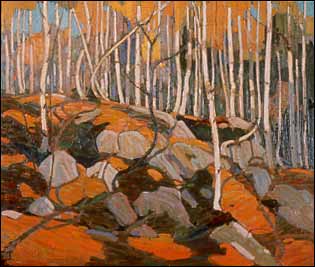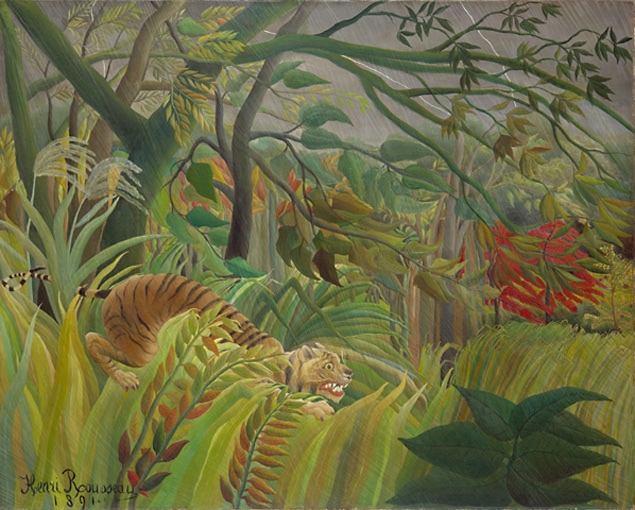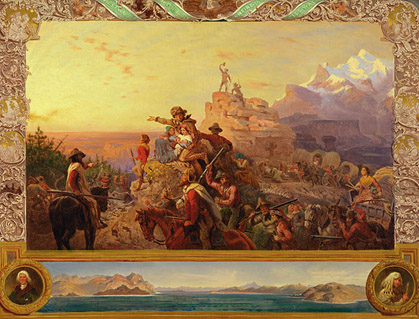Ecologies
of
Identity
1  2
2  3
3  4
4 
Much
of my work deals with the environmental
imagination, i.e., the
variable,
divergent and conflicting
ways in which people perceive, interpret, and culturally construct
nature,
environments, space/place(s), and landscape. I deal with nature as
an
idea
and representation (in art, film, popular culture, public
discourse) and
as medium and site of struggle; and with identity as something that
emerges out of those struggles. Identifying with a place may seem like
an "environmentally correct" thing to do, but it can also be xenophobic
and exclusionary, when lines are drawn around who "belongs" and who
doesn't. Through theoretical as well as applied research in specific
settings,
I'm interested in teasing out the factors that play into these
place-based identity-making porcesses and that move them in different
directions - in exclusionary ones versus more open-ended ones - and,
ideally, in developing place-practices that could build "multicultural
ecologies" and "cosmopolitan bioregionalisms" (see definitions below*) and contribute toward
the
development of globally connected, just, and sustainable cultures,
polities, economies.
Ecologies of identity
. . . in Vermont (to come).
N.B. photo
#3 above is a Bread and Puppet Theatre (based in Glover, VT) model
Vermont farmer - against GMOs, pro-secession (from Bush's USA)... Bread
and Puppet's performances in towns around Vermont (including at Fourth
fo July parades) circulate its communitarian, decentralist, pro-peace
and anti-corporate message among old
back-to-the-landers, small-c conservatives, new lefties, and
exurban liberals.
See also my Green Visual & Cultural Studies and Eco-Theory pages
Book project:
Ecologies
of Identity: Culture, Nature, and Enchantment in Global Spaces
If
the
twenty-first century portends to be a time of environmental conflicts –
over
oil and other scarce resources, and over the potentially debilitating
effects
of global climate change – it is also one in which ethnic or identity
conflicts
loom equally large. Globalization intensifies the movement of people,
goods,
images and ideas: in its wake, cultural identities adapt by becoming
more
global and blurred, but also by a resistant assertion of differences. Ecologies
of Identity
will examine cultural change in the
face of the twin waves of globalization and environmental crisis. Just
as the
rise of the nation-state found national elites crafting links between
cultural
heritage and territory, so the fitful emergence of a nascently global
community
shows signs of new connections being forged between environment and
identity at
a range of scales, from the local to the global. This book will focus
on what
constitutes “nature” at such sites, and how it in turn constitutes
(individual
and collective) subjectivity: from Hollywood representations of
environmental
threats and scientific and media discourses of global weather events to
scholarly
theories of ‘cosmopolitan citizenship’ and ‘ecological identity,’ from
UNESCO
World Heritage sites to world music festivals, environmental ‘negative
heritage’
sites, and places of ‘Gaian pilgrimage.’
A multicultural
ecological theory aims to hold in productive tension the realist
assertions
of ecology with the constructivist underpinnings of contemporary
cultural
theory. See “Toward a Multicultural Ecology,” Organization and
Environment
15 (4), 2002, 389-409. Go
back up.
Cosmopolitan
bioregionalism: On cosmopolitanism,
I’ve been influenced by the work of
Ulrich Beck and other sociologists who examine some of the more
positive sides
of cultural globalization, postmodernization, and
‘cosmopolitanization.’ On
bioregionalism, click here
for something I wrote years ago on bioregionalism and ritual when I
lived in
the Oak Ridges Bioregion in Toronto. The combination of the two terms
was first
articulated (to my knowledge) by bioregionalist Mitch Thomashow. Go
back up.
 2
2  3
3  4
4 